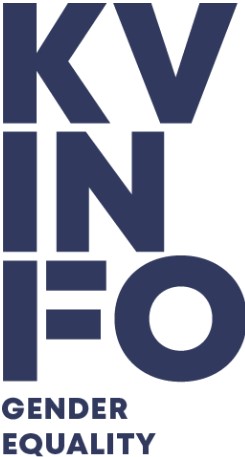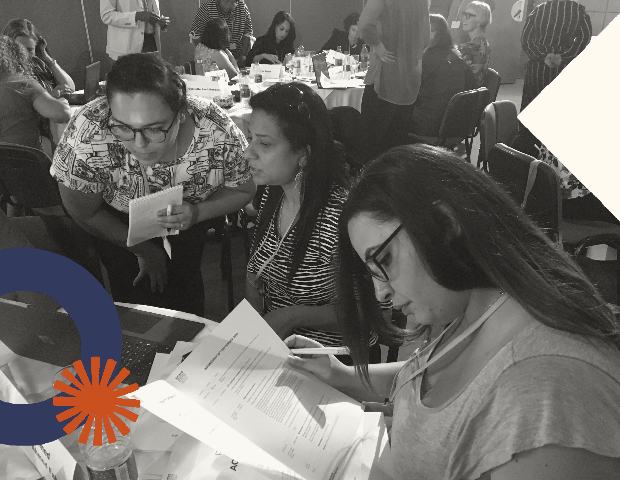Women use tech solutions but rarely create them. KVINFO and partner Motoon are supporting women to take charge in the Egyptian tech sector.
Until women have the knowledge and skills to take charge of tech solutions, they will not be able to create algorithms and use technology to their own advantage. Factors that exacerbate the situation are the highly male dominated work environment in most tech companies and the lack of digital security for female activists, women’s organisations, and any woman using social media.
“These problems are huge everywhere, especially for women. In the Middle East and North Africa even more so because of the risk of bringing shame on the family – as a woman you are solely responsible for the entire family’s honour,” says Katarina Blomqvist, Senior Advisor, KVINFO.
Tech communities are unfriendly to women
In Egypt, KVINFO is supporting female techies through its partner Motoon’s project Noon Tech.
“The Noon Tech project is empowering women as users to master the technology, including understanding the opportunities it can offer and the threats it may bring. The project also supports women who work in the tech field and in tech communities, which are not very women-friendly worldwide. We need to have more successful female role models, because you cannot empower more women to master technology when your trainer team does not have any women in it,” says Manal Hassan, Co-founder and Programme Development Officer, Motoon.
She explains that online behaviour is an extension of offline behaviour: “The threats women face in their societies can be easily replicated and sometimes magnified on the internet, from monitoring and tracking by parents and spouses, to fake accounts and blackmail, to hijacking of personal data, accounts, and devices.”
Motoon also provides women with technical support through its on and offline tech clinic, the documentation of stories, and the production of simple guides illustrating various scenarios and threats.
With the support of Motoon, women who work in technology are offered space to engage in discussions about the obstacles they face as women working in this field.
“From early discussions it was very clear that a lot of the problems faced by women in this field can be attributed to stereotyping and the opportunities available to these women, including learning, networking, and job opportunities. Will being hired by a software company give women an opportunity to be part of creating the actual application or will it limit them to managerial and client relationship tasks?” asks Hassan.
Facts on gender equality in Egypt
- Women make up a persistently low 23% of the Egyptian labour force. Without inclusiveness, however, economic growth cannot be sustained, and women represent an untapped resource in Egypt’s economy.
- Women have made up less than 25% of tech employees over the past 20 years.
- Gender-specific restrictions are applied to women working night hours and doing specific types of work, and there is no legal protection for domestic workers.
- Egyptian family law is based on Islamic law and discriminates against women’s rights regarding marriage, divorce, male access to polygamy, and inheritance. Egypt also lacksa law on violence against women.
Source: arabstates.unwomen.org
Sharing knowledge and experiences
KVINFO is collaborating with Motoon in various ways. Motoon Project Manager Nada Kabbry has, for example shared the experiences from Egypt at online seminars on gender and digital violence organised by KVINFO and Oxfam Ibis. As a global problem it is important to share methods.
KVINFO also supports Motoon’s tech camps targeting university students studying computer science and information systems, where participants are invited to question whether algorithms can be neutral or whether they reflect the biases of their creators.
A database containing the profiles of female techies is under construction and will be made available to event organisers and curators looking for speakers and trainers.
The communities of skilled female techies are connected with civil society through meetings and by targeting university IT students and graduates.
Techies are invited to all-female tech workshops, where trainers and trainees organise events around women and technology.
Blomqvist recalls participating in one of these events:
“It was fun. It continued way into the night, and during the breaks we were all mingling. One of the speakers, Nada El Shabrawy, was a young YouTuber and vlogger reviewing books. She has a hundred thousand followers. Another participant had built a community called Femi Hub for young women living away from their families. They were lonely until they joined together to support each other online,” says Blomqvist.
“I was very impressed by the solidarity and the willingness to share, not only stories of success but also failures. Many of the participants are stars in the Egyptian IT sky,” stresses Blomqvist.
Men dominate the field
The gender inequality in the tech sector is not unique to Egypt. Similar problems occur all around the world – also in Denmark, which makes gender and IT an interesting field for cooperation. Lack of equal pay and equal opportunities for promotion are common problems, and gender norms are one of the barriers.
“IT and media are a double-edged sword,” says Blomqvist, “The smart phone and social media carry a lot of freedom for Egyptian girls and women, who are usually expected to come straight home from school or work and who cannot move freely outside.
Thanks to social media, they may chat with friends, do business, and take part in societal activities online.
But women also face sexual harassment online.”
In Egypt, social media are closely monitored by the authorities, who crack down on any political opposition and also on content often labeled as girls entertainment, such as short dance videos.
Subsequently, two young women have been sentenced to two years’ prison for posting indecent videos on the video-sharing app TikTok.


